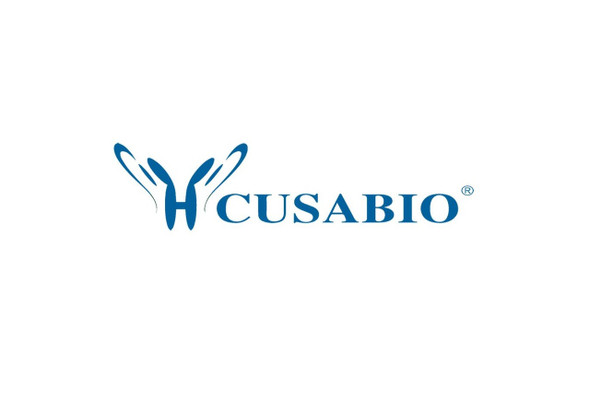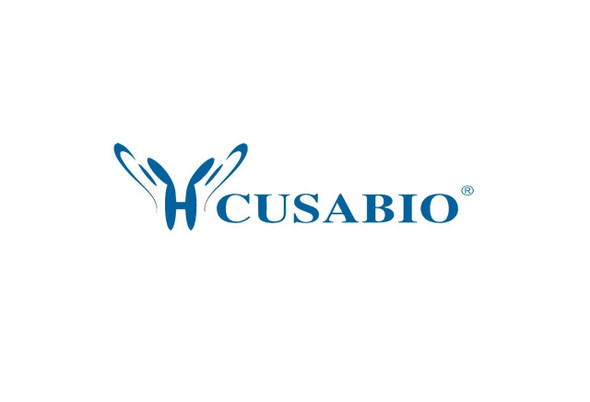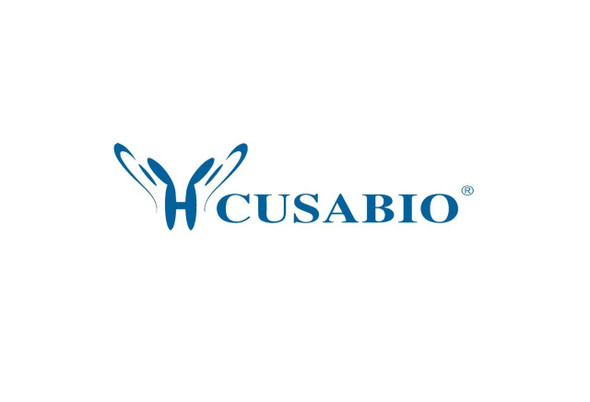Cusabio Mouse Recombinants
Recombinant Mouse NACHT, LRR and PYD domains-containing protein 3 (Nlrp3), partial | CSB-EP823181MO
- SKU:
- CSB-EP823181MO
- Availability:
- 3 - 7 Working Days
Description
Recombinant Mouse NACHT, LRR and PYD domains-containing protein 3 (Nlrp3), partial | CSB-EP823181MO | Cusabio
Alternative Name(s): Cold autoinflammatory syndrome 1 protein homolog Cryopyrin Mast cell maturation-associated-inducible protein 1 PYRIN-containing APAF1-like protein 1
Gene Names: Nlrp3
Research Areas: Others
Organism: Mus musculus (Mouse)
AA Sequence: MTSVRCKLAQYLEDLEDVDLKKFKMHLEDYPPEKGCIPVPRGQMEKADHLDLATLMIDFNGEEKAWAMAVWIFAAINRRDLWEKAKKDQPEWNDTCTSHSSMVCQEDSLEEEWMGLLGYLSRISICKKKKDYCKMYRRHVRSRFYSIKDRNAR
Source: E.coli
Tag Info: N-terminal 6xHis-SUMO-tagged
Expression Region: 1-153aa
Sequence Info: Partial
MW: 34.2 kDa
Purity: Greater than 90% as determined by SDS-PAGE.
Relevance: May function as an inducer of apoptosis. Interacts selectively with ASC and this complex may function as an upstream activator of NF-kappa-B signaling. Inhibits TNF-alpha induced activation and nuclear translocation of RELA/NF-KB p65. Also inhibits transcriptional activity of RELA (By similarity). Activates caspase-1 as part of the NALP3 inflammasome complex in response to a number of triggers including bacterial or viral infection which leads to processing and release of IL1B and IL18.
Reference: "Induction of PYPAF1 during in vitro maturation of mouse mast cells."Kikuchi-Yanoshita R., Taketomi Y., Koga K., Sugiki T., Atsumi Y., Saito T., Ishii S., Hisada M., Suzuki-Nishimura T., Uchida M.K., Moon T.-C., Chang H.-W., Sawada M., Inagaki N., Nagai H., Murakami M., Kudo I.J. Biochem. 134:699-709(2003)
Storage: The shelf life is related to many factors, storage state, buffer ingredients, storage temperature and the stability of the protein itself. Generally, the shelf life of liquid form is 6 months at -20?/-80?. The shelf life of lyophilized form is 12 months at -20?/-80?.
Notes: Repeated freezing and thawing is not recommended. Store working aliquots at 4? for up to one week.
Function: As the sensor component of the NLRP3 inflammasome, plays a crucial role in innate immunity and inflammation. In response to pathogens and other damage-associated signals, initiates the formation of the inflammasome polymeric complex, made of NLRP3, PYCARD and CASP1 (or possibly CASP4/CASP11). Recruitment of proCASP1 to the inflammasome promotes its activation and CASP1-catalyzed IL1B and IL18 maturation and secretion in the extracellular milieu. Activation of NLRP3 inflammasome is also required for HMGB1 secretion
Involvement in disease:
Subcellular Location: Cytoplasm, cytosol, Inflammasome, Endoplasmic reticulum, Secreted, Nucleus
Protein Families: NLRP family
Tissue Specificity: Expressed with high levels in peripheral blood leukocytes, including Th2 lymphocytes and macrophages (PubMed:15302403) (PubMed:26098997) (PubMed:16546100). Expressed at low levels in resting osteoblasts (at protein level) (PubMed:17907925).
Paythway:
Form: Liquid or Lyophilized powder
Buffer: If the delivery form is liquid, the default storage buffer is Tris/PBS-based buffer, 5%-50% glycerol. If the delivery form is lyophilized powder, the buffer before lyophilization is Tris/PBS-based buffer, 6% Trehalose, pH 8.0.
Reconstitution: We recommend that this vial be briefly centrifuged prior to opening to bring the contents to the bottom. Please reconstitute protein in deionized sterile water to a concentration of 0.1-1.0 mg/mL.We recommend to add 5-50% of glycerol (final concentration) and aliquot for long-term storage at -20?/-80?. Our default final concentration of glycerol is 50%. Customers could use it as reference.
Uniprot ID: Q8R4B8
HGNC Database Link: N/A
UniGene Database Link: UniGene
KEGG Database Link: KEGG
STRING Database Link: STRING
OMIM Database Link: N/A









